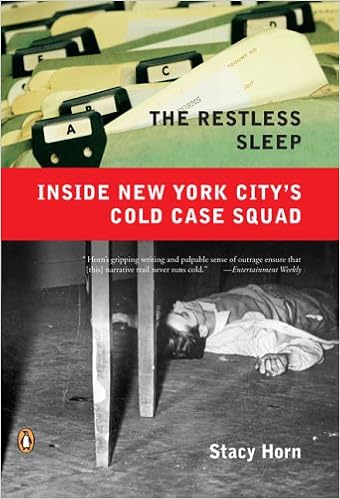Non-fiction. Horn's account from inside the NYPD Cold Case Squad, published in 2005. Four cases are covered in-depth, with side-ventures into Property, DNA, the prison system, finances and internal politics, the history of the squad, etc., as well as the personality of the detectives and leadership. It's fascinating and largely depressing - well, I think you would have to be someone able to see the glass '1/4 full' - at least there is a squad, and committed detectives, out there, but the task is Sisyphean and desperately underfunded.
'Success,' when it comes, takes months, years, and is by no means guaranteed. Not all of the cases Horn chooses get resolved. Worse, one really grasps how illusory and deceptive the concept of 'closure' is: If the detective is lucky enough to solve the case the perpetrator may or may not be already dead, or in prison for another crime, or the ADA may simply have no interest in prosecuting an old, possibly shaky, case. If the perpetrator is prosecuted, he or she may not end up in prison, or end up serving a ridiculously short time. Even when 'justice' is served, the families realize - after an initial euphoria - that nothing essential has changed: their loved one is still just as gone, the tragedy that has warped their lives continues.
Horn has a keen sense of the permanent, destructive tragedy of murder that gives the book tremendous poignancy, an emotion many of the detectives themselves are not able to openly feel because it would cripple their functionality. They roll their eyes at the idea of themselves as heroes - most of the job involves endless paperwork and hours on the phone, interviews and re-interviews - but in some cases they do remove a previously unknown killer from the streets, and sometimes the heroism is just that someone cares enough to make an effort on behalf of a victim everyone else seems willing to forget.
One of the unexpected things I got from reading this was a sense of the peripheral damage of 9/11, how much of a wrecking ball it was because everything else got put on hold, or lost, while they dealt with the immediate problems of a mass casualty event. It also skewed funds and attention toward counter-terrorism, which means less manpower and resources for all the other departments in this zero sum situation.

No comments:
Post a Comment